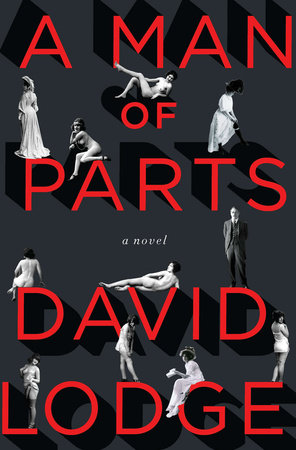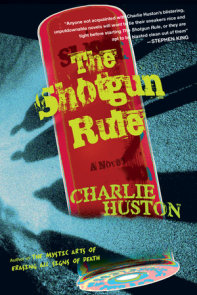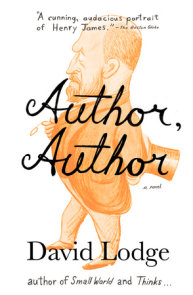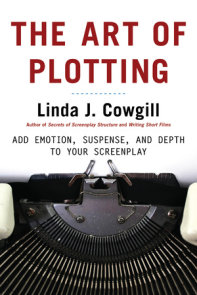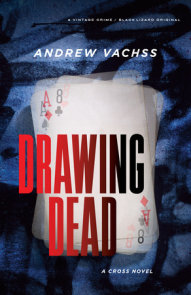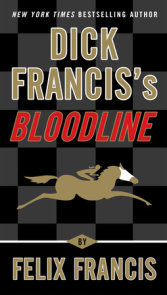READERS GUIDE
Questions and Topics for Discussion
INTRODUCTION
David Lodge has a gift for writing about writers. In Small World, Changing Places, and Nice Work, he takes readers on a brilliantly satirical romp through the literary/academic world on both sides of the Atlantic, with unforgettable portraits of poets, novelists, and critics. In Author, Author, he explores Henry James’s frustrated attempts to become a successful playwright. And in A Man of Parts, Lodge gives us a vivid, sympathetic portrait of the remarkable H. G. Wells, author of The Time Machineand War of the Worlds, a man whose appetite for sex was equaled only by his prodigious literary output.
The novel begins as Wells’s life is ending. He knows he is dying and engages in a kind of life review, which takes the form of a rigorous self–interrogation. Wells asks himself some very tough questions in a spirited back–and–forth that gives readers a fascinating glimpse into the tensions of his inner life and the workings of his mind and heart. He questions his own motives, his behavior, and the consequences of his actions with a relentless honesty few people would attempt.
Wells asserts, during one of these interrogations, that the unified self is a fiction, that we are all a “bundle of incompatible parts” (p. 397). Wells himself would seem to illustrate the point. A promiscuous and passionate believer in free love, he suffered agonizing jealousy if his most cherished lovers were unfaithful to him. At times defiantly selfish, Wells could also be remarkably generous. He wanted to create a peaceful utopian society but was at times jingoistic and warmongering. He was a visionary who essentially invented the tank, foresaw air warfare, anticipated the atomic bomb and the Internet, yet was spectacularly wrong about World War II, which he predicted would be over in six months.
A Man of Parts dramatizes the parallel progress of Wells’s voracious sex life and prolific literary output. After his first erotically unsatisfying marriage to his cousin Isabel, Wells realizes his need for a more passionate kind of sex and is thereafter more or less continually engaged in passades and more serious long–term affairs, with the knowledge, and for the most part consent, of his second wife, Jane, who proved no more sexually compatible than her predecessor, though in every other way she was an ideal partner, looking after him domestically and assisting him professionally.
Most prominent among Wells’s many lovers were the novelist Rebecca West and the precocious young student Amber Reeves, with each of whom Wells fathered a child. For Wells, and for his lovers, the costs incurred for their adventures in free love were at times considerable, jeopardizing careers, social standing, and emotional equilibrium for all concerned.
Wells’s creative energies were equally legendary. He published more than [to avoid rep of his name and “well”] a hundred books during his life and it was only by writing constantly, with breaks for bouts of lovemaking, that he could keep from being overwhelmed by despair, which is why “he always had one book on the stocks and another at the design stage” (p. 315).
A Man of Parts deftly explores all aspects of Wells’s life-his literary career; the nature and reception of his many books; his argumentative friendships with George Bernard Shaw, Henry James, and other writers; his capacious love life; his foray into socialist politics via the Fabian group; his utopian visions and technological foresight-as he seeks to understand himself, and perhaps to reconcile, or make peace with, his many incompatible parts.
ABOUT DAVID LODGE
David Lodge is the author of twelve novels and a novella, including the Booker Prize finalists Small Worldand Nice Work. He is also the author of many works of literary criticism, including The Art of Fiction andConsciousness and the Novel.
A CONVERSATION WITH DAVID LODGE
Q. What drew you to write about H. G. Wells?
Preparing to write an introduction to his novel Kipps, I came across the story of his involvement with the family of Edith Nesbit, the classic children’s author, and her husband, Hubert Bland, senior members of the Fabian Society, which Wells joined in 1903 in the hope of using it to promote his own idiosyncratic brand of socialism. The relationship combined politics, literary life, and sensational sexual intrigue in a way which made it seem ripe for imaginative exploration, and the novel broadened out from that point to embrace Wells’s whole life.
Q. The novel ends with an acknowledgment that the light of Wells’s star has dimmed but also the hope that “perhaps one day he will glow in the firmament once again” (p. 432). Were you motivated in part by a desire to generate new interest in Wells’s work?
That wasn’t a motive initially, but as I researched his life and work, I was more and more impressed by his versatility, energy, and originality as a writer and thinker, and this comes across in the book. He was a genius, if a flawed one, and a key figure in twentieth–century cultural history. If my novel helps to make more people see him that way, I shall be happy.
Q. What were the most surprising discoveries you made about Wells’s life and work in doing the research for A Man of Parts?
I was astonished by the extent of his amours, the risks he was prepared to take in pursuit of women, his oscillation between purely recreational sex and great romantic love affairs, and his ability to combine these activities with so much literary and political work. I was also impressed by his uncanny ability to predict future developments in science, technology, and social life.
Q. Wells seems to have anticipated the World Wide Web in his vision of a continually updated international encyclopedia, which he wrote about in World Brain. Could you talk more about Wells’s thoughts on this subject?
Wells, who was himself largely self–educated through reading, was a great believer in the dissemination of knowledge to further human progress. His idea of something he called the “World Brain,” a vast free library of knowledge recorded on microfilm, needed only the invention of the microchip to resemble the Internet. He had imagined something like television as early as The Sleeper Awakes (1910).
Q. Wells and Henry James were at opposite ends of the aesthetic spectrum. Where would you place your own work in relation to James’s and Wells’s?
As regards the art of fiction, I’m a Jamesian; that is, I’m very self–conscious about narrative technique, and I like to think I’m a perfectionist. I revise and rewrite a great deal. Wells wrote very rapidly and at times carelessly, and he consciously rejected the Jamesian obsession with elegance of style and form. On the other hand, the content of my fiction has more in common with Wells’s in that I deal often with middle– and lower–middle–class people, including the work they do and their sexual lives, and there is a good deal of comedy in most of my books. James is in fact an unconscious source of comedy in A Man of Parts.
Q. How would you compare the experience of writing a novel about James, as you did in Author, Author, with writing about Wells?
I see them as very much companion novels, with Wells a minor character in Author, Author, and James a minor character inA Man of Parts. Each novel has a frame story about the writers’ last few years of life. Both use novelistic methods to evoke the experience of these men that is not recuperable by the methods of evidence–based biography. But whereas the ironies of Henry James’s career as a playwright, intertwined with his relationship with George Du Maurier, gave me a perfect structure for my main story, Wells’s life–story was much more sprawling and many stranded, and it took me longer to find a satisfactory way of telling it.
Q. How do you think Wells would respond to A Man of Parts? Did you meet with any resistance from his estate?
I like to think he would recognize it as being honest but sympathetic, and I hope the estate feels the same way. The estate was very helpful about giving me the necessary permissions without asking to read the manuscript of the novel. I believe they saw, correctly, that it would help to keep Wells’s work in print.
Q. Some critics have regarded Wells’s womanizing as predatory. How do you view this aspect of his life, personally and as a novelist?
I think it is unfair. In all the relationships I examined and described, the woman, at least initially, was
the pursuer rather than the pursued. It could be argued that with the very young women he should have restrained himself from responding. But I was able to quote letters from two of them, Rosamund and Amber, which shows that they did not regret their relationships with him.
Q. Wells insists that the unified self is a delusion, but as a novelist did you feel compelled to create a unified character from his many parts?
I hope that the narrative discourse of the novel has a cohesion which convinces the reader that all these diverse and contradictory behaviors, characteristics, and principles could coexist in one person.
Q. Do you plan to write more novels about writers?
I have no such plan at the moment. The main disincentive is the fear that someone else may choose the same subject and publish their book before yours-as happened to me in the case of Author, Author, which was eclipsed by Colm Tóibín’s The Master. I actually put off writing A Man of Parts, and wrote Deaf Sentence instead, because I couldn’t bear the thought of the same thing happening twice in succession. But I couldn’t resist the lure of H. G. indefinitely.
DISCUSSION QUESTIONS









